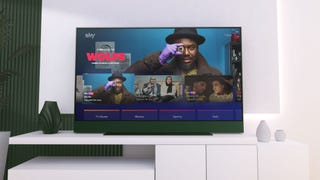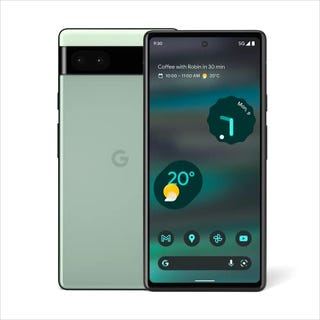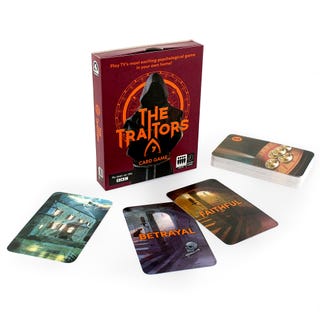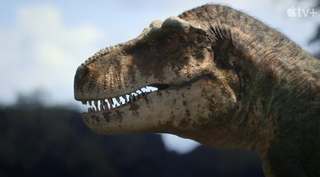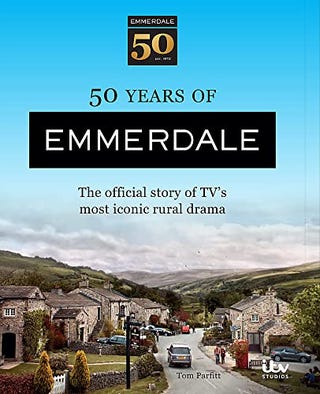Rainbow Crew is an ongoing interview series that celebrates the best LGBTQ+ representation on screen. Each instalment showcases talent working on both sides of the camera, including queer creatives and allies to the community.
Next up, we're talking to Euphoria star Colman Domingo.
Colman Domingo's success hasn't crept up on him. "I've probably crept up on it," he laughs. And it's true. Thirty years after "starting out in black-box theatres that seat 99 seats," Domingo is more in demand than ever thanks to star-making turns in everything from Euphoria and Fear The Walking Dead to Zola and Ma Rainey's Black Bottom. But why now?
"Sometimes it takes a while for the industry to recognise exactly what you do," explains Domingo. "Because we’re always trying to put people in silos. And I’ve never been in a silo. I’ve always played in all realms, whether it’s television, theatre, film, animation – you name it."
That doesn't mean Colman says yes to everything he's offered though. "I’m very specific about what I work on, and how I work. I feel that maybe the projects I’m attracted to are also attracted to me, and what I bring to it. So it feels like there’s this great symbiosis where I’ve figured out the things that are meaningful to me, and are going to push me as an artist."
Thankfully, what's important to Colman as an artist is also pretty important to people at large. Few other actors have enjoyed such a phenomenal run in recent years, particularly with projects that resonate so much with the general zeitgeist. "I think that I’ve been very lucky as well," Colman adds. "But I also know that that luck is mixed with hard work."
Domingo tells us that he's been reluctant to "toot his own horn" in the past. "But I’ve learned that I’ve had to, in a way, so people can understand what you actually do, or how you do it. I had to be in charge of the narrative about how I work, and my work ethic. Because otherwise, people don’t know the work that goes into the alchemy that we do."
It's this work ethic, this alchemy, that makes characters such as Ali so popular, even within an ensemble piece like Euphoria. Whole episodes can go by without him, but when Colman's character does appear, Ali leaves an indelible mark on the show and fans alike.
"I think everyone wants an Ali in their life," says Domingo. "Someone you can talk to, who’s not judgemental, who just wants you to be honest, and figure out what makes you tick. He’s just really interested in you truly being the best self that you can be, whatever that is."
"I don’t think there’s another character like Ali around," Colman continues. "So when [that first Euphoria special] hit the airwaves, people recognised that it was something that was sorely needed, and they embraced it."
It's no wonder fans have such a visceral reaction to Domingo in real life. "When people see me on the street or in a restaurant, the love that they shower me with, I think they treat me as if I’m Ali, in a beautiful way. People are always asking, 'Could I have a hug?' Usually, young women say, 'Could I have a hug, please?'"
"I feel like it’s because of whatever Ali represents in so many ways," suggests Colman. "As a Black man; as a man of the world who has tenderness and kindness and forgiveness, because that’s what he’s asking for in the world."
Like so many characters in Euphoria, Ali's relationship with Rue is central to his role in the story. But what sets him apart is how he's become a moral compass for the show itself, and not just his young charge.
"Ali is the quiet in the storm... He’s the person who has been through what all these kids are going through, but he actually has a full perspective, and he’s trying to impart what he knows, so people can just make the choices consciously for themselves. He sees this young woman of colour who’s struggling, and he’s like, 'Maybe I could help her find another way.'"
In real life, Colman's relationship with Zendaya on set is anything but a struggle. "In between takes, we have incredible conversations that go all over the map; about art; about photography; about human beings; about pop culture. So for a young woman of her age, she’s very wise."
"I think that’s why she’s able to portray characters like Ru," Colman continues. "She’s an incredible empath. I think she feels deeply. That’s part of her gift. And I think that’s what’s made me feel very, very close to her. We work in a limited way, but when we work, it’s very intense and wonderful. We haven’t hung out that much outside of work, but I will tell you: she’s one of my favourite people."
Words like "intense" and "wonderful" apply just as much to Euphoria as they do to Colman's friendship with Zendaya on set. And although this intensity is often scrutinised or called out, there's still some nuance to the show's excess, particularly when it comes to how queer themes are explored in the writing.
"I think that [creator] Sam Levinson takes a sledgehammer and smashes every single trope about sexuality," says Colman. "I think he’s breaking it all down, making sure that people understand it’s complex."
"I love the fact that no one’s talking about LGBTQIA experiences in the show," adds Domingo. "Relationships happen. Whether it’s between a young woman and a trans woman, it just happens. There’s no talk about that at all. People just are. Sex is sex. People are figuring out: what do they love? What makes them feel good? What doesn’t make them feel good?"
And that's not exactly typical when it comes to mainstream TV. "Usually if you have a show with queer representation, everyone’s talking about queer this, queer that, instead of people just being. Which is actually, I believe, the world we live in. In real life, I don’t have conversations with my colleagues — gay or straight, you name it – about sexuality, gender, or anything."
But if Domingo did have some advice for young queer people who struggle with their identity and their place in the world, here's what he would have to say:
"I believe that you are always ready to thrive. You just have to trust it, and go to places where you know you can thrive. It may not be in your small hometown, but perhaps you could be the change. You could be the change. But you have to trust that there’s love for you. Love is always available."
As a gay man of 52 years, Colman grew up at a time when "it really wasn’t healthy for you walk a certain way. You had to armour yourself". And that's still true for many people today, but on the whole, things are certainly getting better.
"I look at this younger generation who can be who they are, and express themselves in the way they dress, smashing tropes about masculinity and femininity. And that’s the most awesome thing. So I want them to continue to lean into that, and make the world what they want it to be. I tell young people to know that they’re the future. Truly, they really are, and they have the ability to create the world that they’re going to see."
It's not just young people who create change though. Following his recent turns in Euphoria and Fear The Walking Dead, Colman will next play the lead in Netflix's Rustin, where he'll play Bayard Rustin himself — "an incredible Civil Rights hero, especially for the LGBTQIA community. But also Civil Rights. Period".
In his own words, playing Rustin has "changed" Domingo, and this Obama-produced film has the potential to effect real change in the world around us too. "When it comes out this fall or winter, I know it’s going to puncture through a ceiling that’s been needed to be punctured in this industry, on account of: how do we tell our stories? How do we tell a story of someone who’s been marginalised in politics, in our society?"
"And I think that it will usher in more stories like that," adds Colman, "because we need more, when it comes to women, queer stories, people of colour. Hopefully, there’ll be a whole bunch of other films right behind me. So I feel very, very proud of this film. When Rustin comes out, I can’t wait to share it with people. I just can’t wait."
And beyond Rustin? "I know that I’m treading territory that has not been done a lot – especially as a Black, queer male – and I’m doing it as such a high level by being exactly who I am. I’m not being marginalised for that, either... It feels like I’m doing something for others. I’m leading the way, and I want more of my brothers and sisters to do the same."
With that kind of drive and ambition, it's obvious that Colman's success was always guaranteed, albeit a long time coming. But now that the industry has finally begun to recognise his talents, Domingo's work can help inspire others to find their own success too, much like how Ali teaches Rue to be the best self that she can be.
Euphoria season one and two is now available to watch on HBO Max in the US and NOW in the UK.




